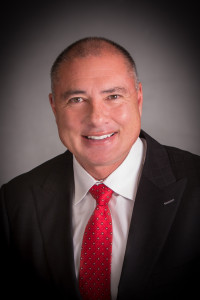
I-Team: Here’s how a private investigator looks for missing teenagers
Ginger Allen, Kelsy Mittauer | April 2023 | Originally published on CBS Texas
DALLAS – It’s been a year since a North Texas teenager was lured from a Mavs game by sex traffickers. The girl’s parents say when police would not help, they turned to a private investigator who found their daughter being sold in another state.
The I-Team joined that PI as he hit the streets in northwest Dallas to search for more victims. It was a Friday night, and JB Hunt was driving along the track, an area known for prostitution. “I think there’s a high probability that two of our victims may be out here tonight,” he said.
Rice traced the girls, ages 15 and 16, to Dallas after spending hours conducting a different kind of search online. We watched as he combed through an endless supply of ads for escorts in Dallas. Rice compares the photos in the ads to pictures posted by the National Center for Missing and Exploited Children, or NCMEC.
“There’s a high probability that they’re going to pop up on the radar of a pimp or a predator, so runaways often turn into trafficking victims.” This is Hunt’s full-time job at the Texas Counter-Trafficking Initiative, a nonprofit based in Houston.
He says doing the online research is the best way to make sure police will respond when he finds a juvenile. “I could easily have called law enforcement in Dallas and said ‘hey, I think these girls are up here because xyz,'” said Hunt. “Well, that’s not going to mean a whole lot. But if I have eyes on them, or I can prove out that yes, this child is currently at this location… now that’s actionable intelligence.”
Dennis Ozment follows a similar theory. He runs 4TheOne Foundation, a nonprofit search firm that focuses on missing and exploited teenagers. “We know that the longer they are on the street, the more vulnerable they are to being hurt or trafficked,” said Ozment.
He and his fellow private investigators do their own surveillance, setting up for hours at a time when they find a missing teenager. But he says in the last few years, some police departments have become less willing to step in when asked. He described a recent case where a PI called officers after watching a girl enter an apartment with a man.
“Their response was, ‘Well, if you know she’s in there then tell the family where she is and they can come get her.’ And of course we’re not going to do that,” said Ozment. “Because if that’s a trafficker in there, you don’t want mom or dad knocking on the door because somebody is going to get hurt.”
The CBS News Texas I-Team dug into the numbers, comparing law enforcement officers to the number of missing juvenile reports filed with the DPS Missing Persons Clearinghouse in 2021. Across Dallas County, there is one officer for roughly every 80 juveniles reported missing each year. In Tarrant, there is one for every 51 missing juveniles. Law enforcement agencies in Denton County have one officer for every 31 cases, and in Collin County that ratio is one to 20. That does not include each investigator’s entire caseload.
Jimmy Perdue, the police chief at North Richland Hills PD, says his department prioritizes every case that comes in. Perdue, who is also the president of the Texas Police Chiefs Association, says every missing juvenile case is typically reviewed for risk factors. Those factors include social media history, drug use, and any previous incidents of running away. Even if a teen leaves on their own, Perdue says, detectives don’t stop searching.
“It’s always going to naturally be a lower priority than a case where the child is in danger,” said Perdue. “I would say it’s a balancing act across that specific detective’s workload, their schedule, and everything that goes on.”
Perdue says when it comes to finding a runaway, there is no “one size fits all” approach. Each case is different. “We understand the grief from the family standpoint. A lot of times, there’s just very little we can do.”
That’s where advocates like Rice and Ozment come in; over their years their organizations have helped recover more than 500 teenagers. You can find out more about their nonprofits here and here.

